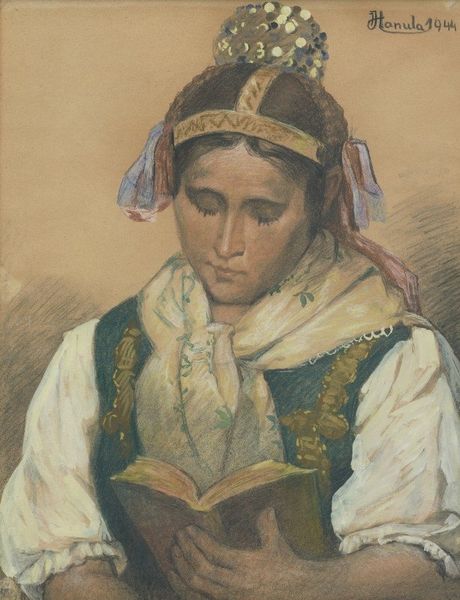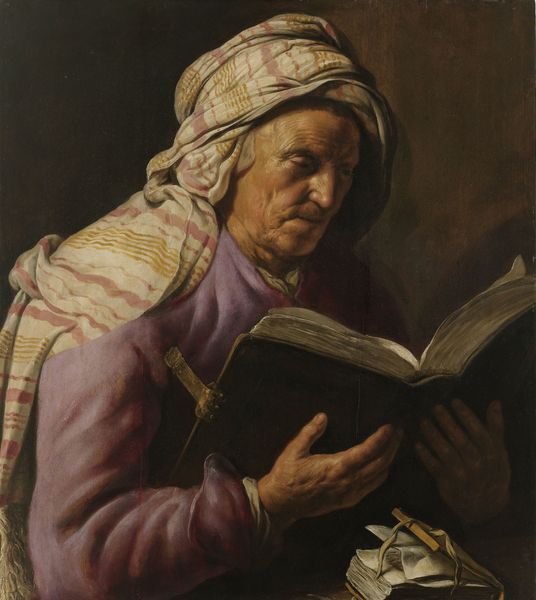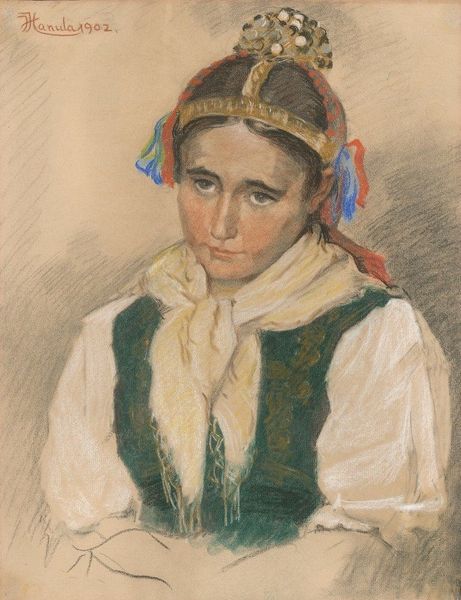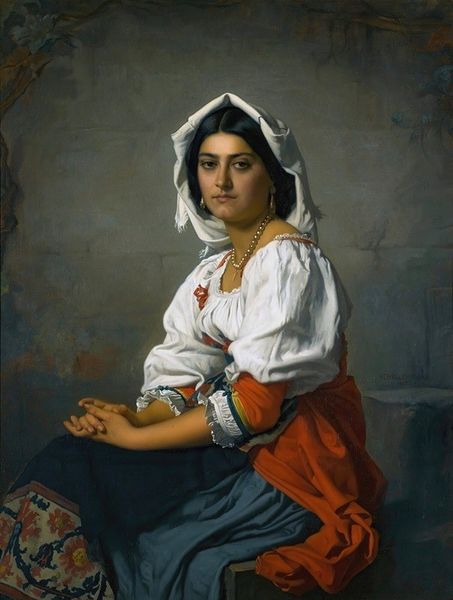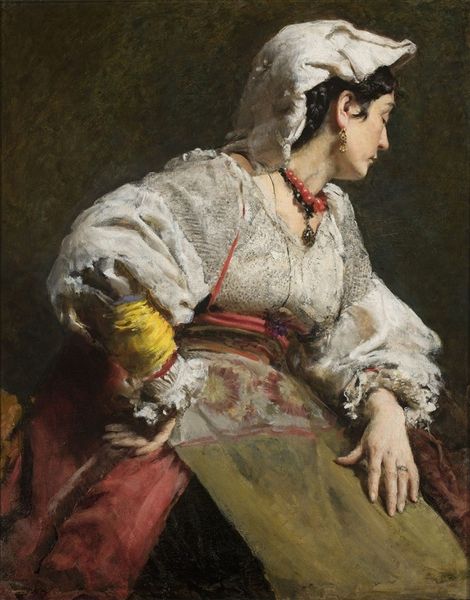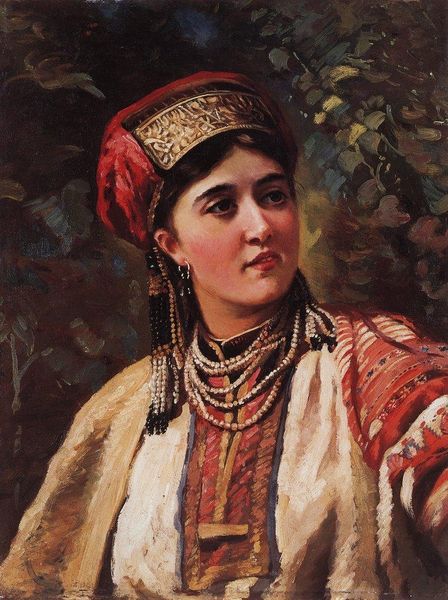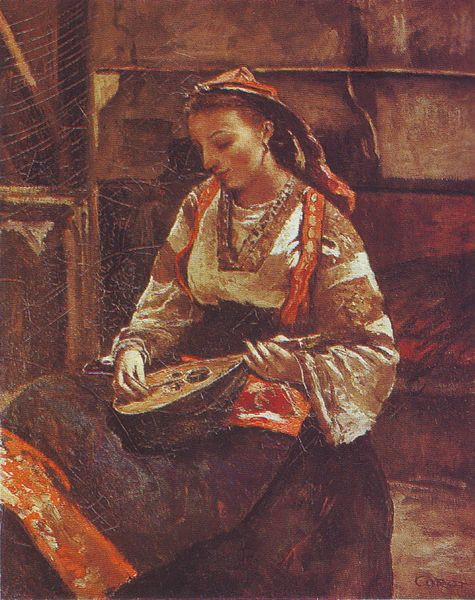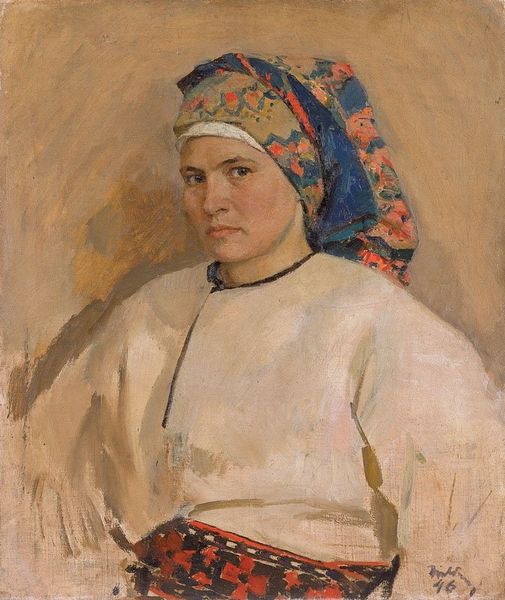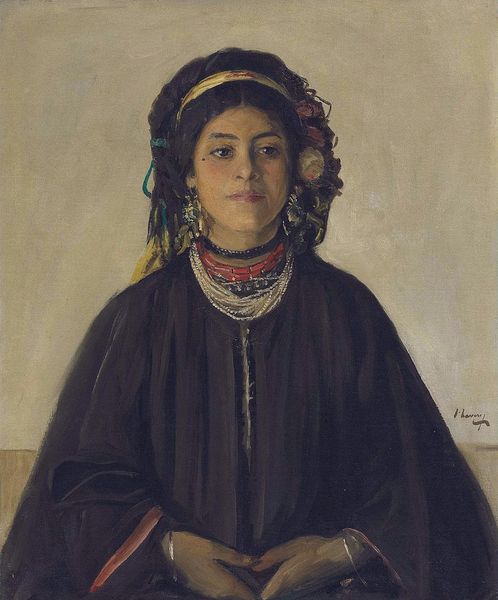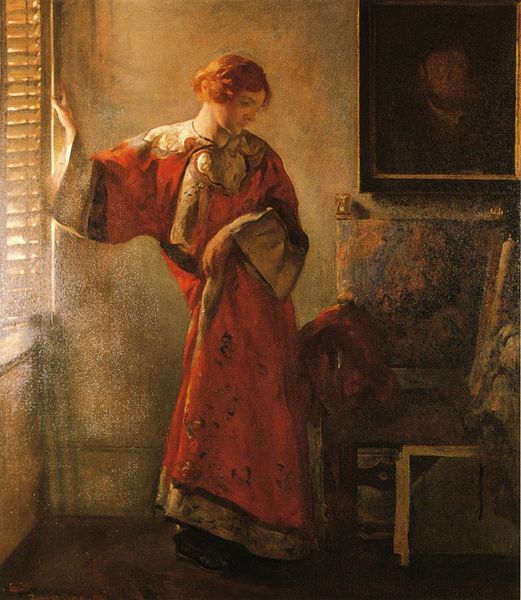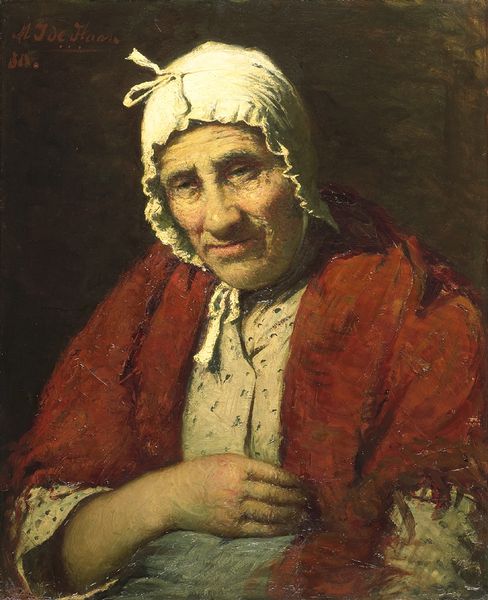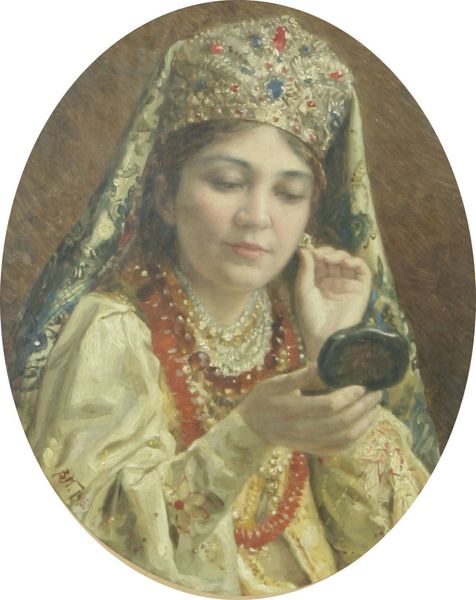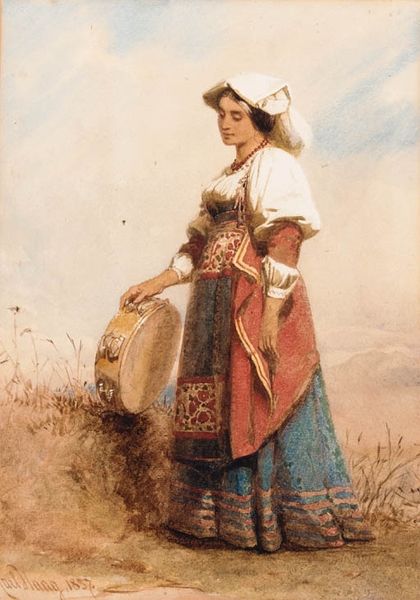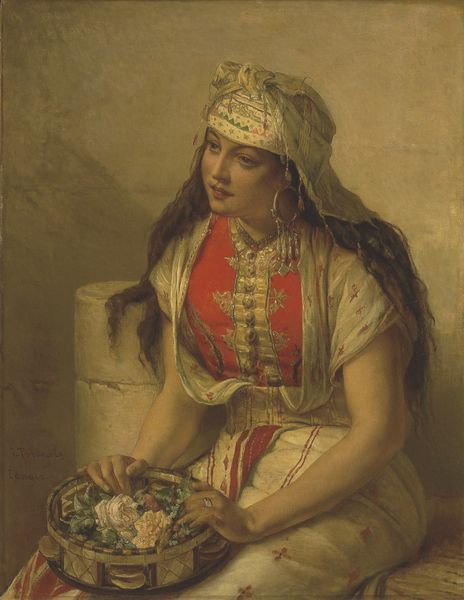
figurative
character portrait
portrait subject
oil painting
portrait reference
portrait head and shoulder
facial portrait
portrait art
fine art portrait
celebrity portrait
digital portrait
Copyright: Public Domain: Artvee
Editor: So here we have Jozef Hanula’s "Letter from America," painted between 1905 and 1910. The oil paint lends a soft, almost dreamlike quality to the woman, especially her traditional dress. What’s your interpretation of this piece? Curator: What strikes me immediately is the intersection of labor and emotion embodied in this woman. The meticulous detail in her traditional garb contrasts with the letter she's reading, presumably "from America." Considering the period, doesn't this juxtaposition hint at the socio-economic forces driving migration and the personal impact of displacement on women and their communities? Editor: That's an interesting point about displacement. I was mainly focusing on her clothing and craft; I hadn't thought about her place in this moment of migration. Curator: Consider the symbols. Her traditional dress speaks to her rootedness, while the letter evokes longing and a potentially fractured identity. Hanula positions her on the precipice of immense social change, doesn't he? It raises questions about how industrialization and global capitalism impacted traditional roles and expectations, especially for women in rural communities. Does she have agency? Editor: So it's more than just a portrait of a woman; it's a commentary on the cultural and economic shifts of the time? What did emigration mean for her, and women like her? Curator: Precisely! And the choice to depict her with lacemaking tools subtly emphasizes the skills she brings with her or leaves behind, linking her personal identity to broader economic structures. The letter is also a record of experience, and her work contributes to our cultural heritage. Editor: I guess I hadn't fully appreciated the layers of meaning embedded in such a seemingly simple portrait. Curator: By bringing a feminist lens and sociological frameworks to our interpretation, we start to really grasp the artist's intentions. It becomes clear the subject has hopes and agency, but also is living through upheaval. Editor: Thanks for pointing out the sociopolitical context!
Comments
No comments
Be the first to comment and join the conversation on the ultimate creative platform.
